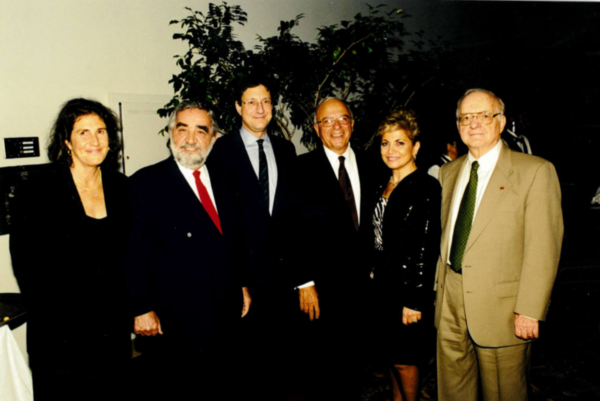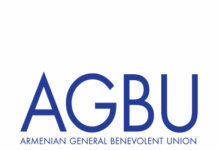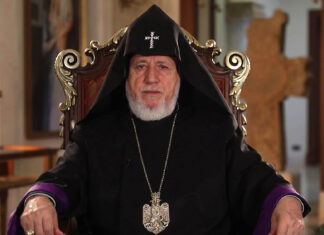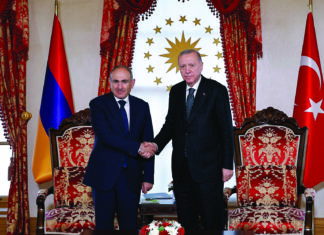BELMONT, Mass. — Robert Aram Kaloosdian of Belmont, died on May 12, 2024.
He was the husband of Marianne (Voynick) Kaloosdian; father of Paul (Carl) Kaloosdian, Lori (Roland) Pease and Sonia (Brian) Hale; grandfather of Marianna and Nathaniel Pease, Alexandra, Julia and Emily Hale and great-grandfather of Ava.
He was a founder of the Armenian Assembly founder and core leader of the organization.
A lawyer’s lawyer, a community leader his entire life, a universally respected activist with a unique set of skills that allowed him to transcend partisanship and communicate with all elements of the Armenian community in all its diversity, a man whom many trusted to advance the welfare of their community and to represent it within the structures of the community and the agencies of the broader society they inhabited, a constant presence in the Armenian Massachusetts scene whose contacts with state and national officials began in the Kennedy era, and the indispensable backbone of the organization to which he devoted decades of his attention to guiding and promoting, the longest serving board member of the Armenian Assembly, a friend to the scholarly community, an author, a firm believer in the potential of the Armenian people, especially its American contingent, and a committed friend of Armenia and Artsakh, Aram Kaloosdian epitomized the best of a generation of Armenian Americans who have left the deepest imprint upon their society.
Robert Aram Kaloosdian was among the original handful of activists who 52 years ago took up the challenge of creating a new entity for the Armenian-American community. Approached by Dr. John Hanessian and Dr. Haigaz Grigorian about their idea of forming an Armenian Assembly, he was persuaded by the value of their proposal and became over the course the next 50 years its most persistent promoter. Along with the other distinguished volunteers, including the likes of Dr. Lionel Galstaun, Dr. Richard Hovannisian, Haig Der Manuelian, soon joined by Dr. Dennis Papazian, and others, he enlisted in the Steering Committee that convened the three community-wide meetings held at Airlie, Va., in 1972, 1973, and 1974. He also had a major role in persuading significant donors to support the effort when still in the discussion stage.
Before he knew it, he found himself co-chairing the Armenian Assembly and guiding it through its formative years.









